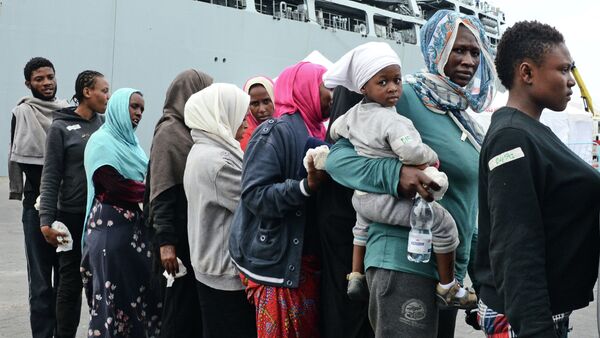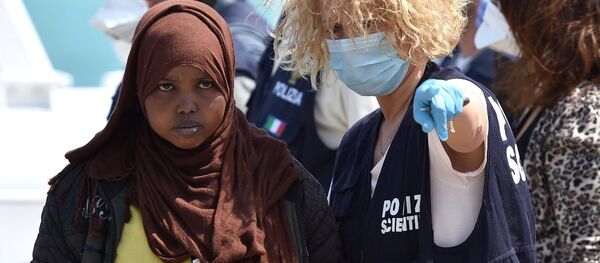According to the poll of 1,469 Slovaks, carried out between June 8 and 14, 33.8 percent said they were resolutely against the quota plan, while an additional 36.3 percent said they would prefer not to accept the migrants.
The respondents were also asked if they believed the migrants posed a threat to Slovakia and its citizens. A majority, 63.4 percent, said yes, compared to 24.4 percent who replied that they don't consider the migrants to be a risk.
In May the Prime Ministers of Slovakia and the Czech Republic announced that they were against any imposition of quotas for the number migrants to be accepted by EU countries, after a meeting of the two governments in Valtice in the Czech Republic on May 12.
"I refuse to accept any quota policy, in principle," said Slovak Prime Minister Robert Fico. "Political conclusions from the European Council are in place, which have an unambiguous voluntary element."
It plans to relocate 24,000 migrants who arrive in Italy and 16,000 who arrive in Greece from Syria and Eritrea after 15 April 2015, over the next two years, a measure which could be expanded to include an influx of migrants to other countries such as Malta. In addition, the Commission plans to ask EU member states to settle 20,000 mainly Syrian migrants, who currently live in refugee camps outside the EU, in Turkey, Jordan and Lebanon.
On June 10 the UN announced the number of migrants and refugees crossing the Mediterranean into Europe in 2015 had reached 103,000, with the vast majority landing in Italy and Greece: 54,000 and 48,000 respectively. More than 1,800 people have died making the crossing to Europe so far this year.




